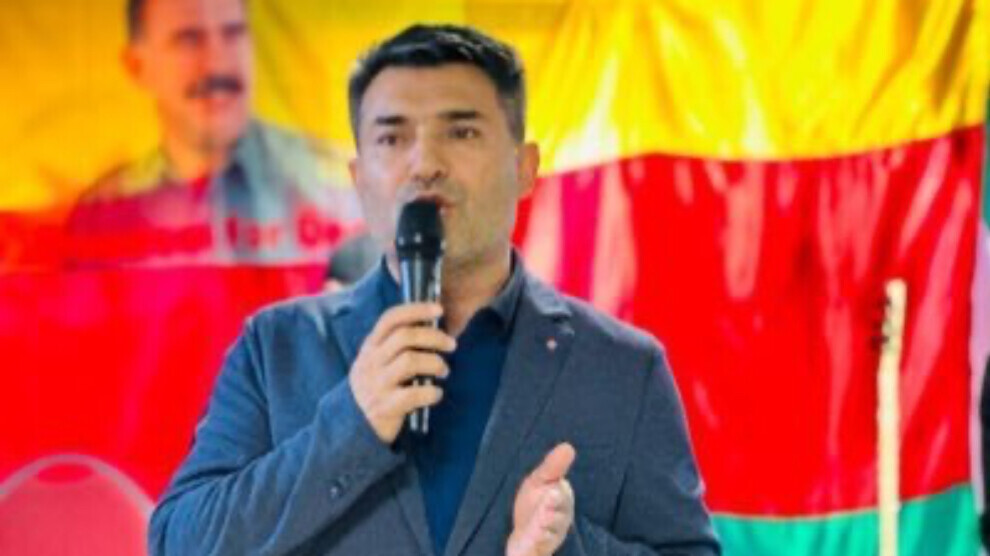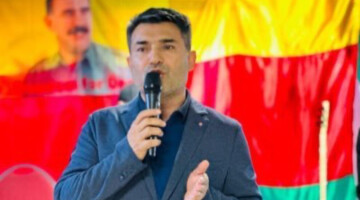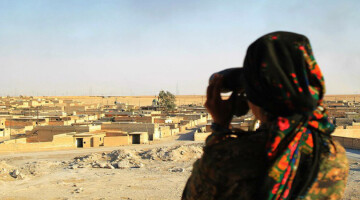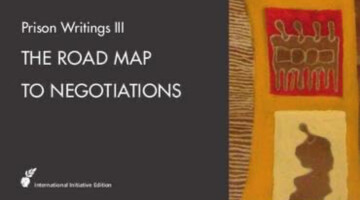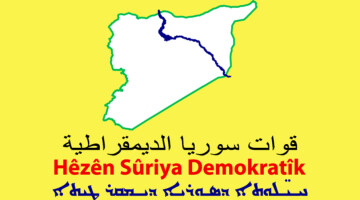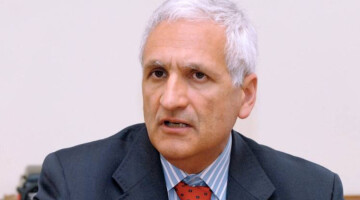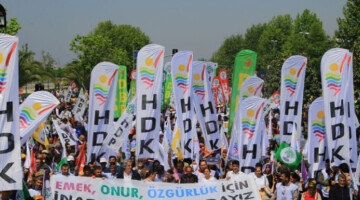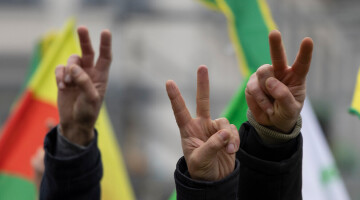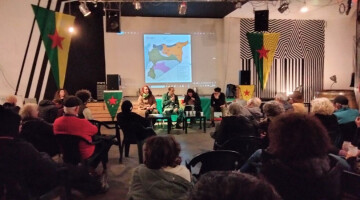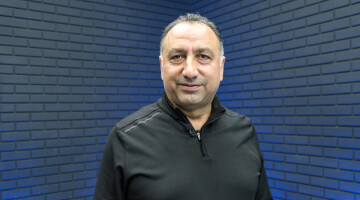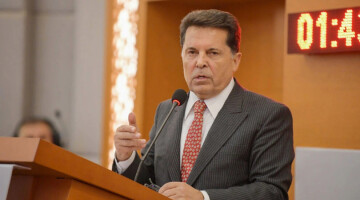Kerem Gök, the co-chair of KON-MED, said that they have evaluated the candidates' profiles and past practices ahead of the elections that will take place tomorrow, Sunday, in Germany. He also expressed hope that the newly formed German government would abandon the criminalization of Kurds, refrain from reducing its relations with Turkey to mere commercial interests, and recognize the rights of the Kurdish community.
Following the collapse of the so-called ‘Bulb Coalition’ government, formed by the Social Democratic Party (SPD), the Greens, and the Free Democratic Party (FDP), Germany will hold new elections tomorrow, Sunday 23. With the Kurdish population in Germany exceeding 1.5 million, ANF talked about their political stance and expectations regarding the elections with KON-MED co-chair Kerem Gök.
Considering both the policies of the current government and the expectations for a possible new government, why are these elections important?
The elections in Germany will take place at a crucial historical turning point. These elections will be held at a time when the U.S. elections are making their impact felt across Europe and the world. Right-wing forces are increasingly gaining ground in Europe, and particularly in Germany, where the Alternative for Germany (AfD) has become the leading party in many federal states.
The elections are gaining even more significance in terms of both us, the Kurds, and German society due to the timing and conditions under which they will be held. Compared to previous governments, the current administration’s economic policies have led to a decline, as seen in key indicators such as bank interest rates, housing affordability, and the prices of food and fuel. The increase in the prices of basic food products further exacerbates this situation.
Regarding the healthcare system, compared to previous governments, it is difficult to claim that an effective and structured system is in place. The practices that citizens face when they go to the hospital for treatment have caused widespread discomfort in society.
When we evaluate the education system, empty classes and a shortage of teachers stand out as negative factors.
Another example is the German railway system, Deutsche Bahn, which was once considered exemplary worldwide. It was known for its punctuality, with trains arriving and departing precisely on time. However, this system has also deteriorated.
What is the political landscape for the Kurdish community in Germany?
When evaluating the situation from the perspective of Kurds, unfortunately, this government has not performed well. Kurdish organizations have been banned in Germany for the past 30 years, and this has severely restricted the demands, aspirations, and activities of the Kurdish community. In terms of social, cultural, organizational, and institutional development, the Kurdish community has faced unfavorable policies and practices in Germany. During the tenure of this government alone, thousands of Kurds have been subjected to financial penalties, had their residence permits revoked, faced rejections in their citizenship applications, and encountered discrimination in the job market. Many people affiliated with our associations, federations, and allied organizations, whether as members, administrators, or employees, have been subjected to legal and financial prosecutions.
The activities of the Kurdish community in Germany were shared with the Turkish state, which then seized the properties of these individuals, threatened their families, and prohibited them from traveling to their homeland.
Under normal circumstances, an association sustains its activities through membership fees. However, those who became members of our associations were punished by German authorities. Their residence permits were revoked. Even when their children pursued legal education or applied for civil service positions, their involvement in association activities was used against them as an obstacle.
In reality, our associations function similarly to a state institution. They conduct language courses, integration activities, awareness programs on certain diseases, and initiatives to ensure that children learn their culture. Normally, the state should pay salaries to those working in these associations, but instead, as in previous governments, they have been subjected to punitive measures under the current administration.
Eighteen of our friends are still in prison. House raids, association raids, black propaganda, and criminalization efforts have been among the practices we have been excessively subjected to under this government. When we examine the indictments of our arrested friends, we see that nearly all of them have been charged for participating in, organizing, or attending demonstrations, events, festivals, and Newroz celebrations. Even protests against massacres targeting Kurds conducted within the legal framework of Germany’s permitted demonstrations have been listed as criminal activities. Co-chairs of associations and federations are being threatened with the revocation of their residence permits. All of these practices are directly linked to the unjust PKK ban that continues to be enforced.
What are the expectations of Kurds from a new government?
We hope that the new government in Germany will act taking into account lessons learned from German history. We expect it to conduct its relations with the Turkish state not solely based on commercial interests but in line with democracy, the rule of law, and fundamental rights and freedoms. We want human rights, fundamental liberties, and the development of language and culture to be prioritized. The Kurdish people are facing genocide.
Many have been forced to come to Germany to escape this fate. Here, they want to express themselves without fear. They seek to preserve and develop their culture against assimilation and to be recognized as a part of German society.
The Kurdish community has long been a part of Germany, paying taxes, and integrating into the bureaucratic system, with thousands of Kurdish children now holding positions within it.
We have become an integral part of German society, and we now consider Germany our second home. We expect the new government to acknowledge this reality and to grant Kurds the same rights as other communities and individuals in Germany.
You published a declaration outlining your expectations from the political parties participating in the elections.
Nearly one million Kurds are expected to vote in these elections. As KON-MED, the most organized structure representing the Kurdish community in Germany, we have an active relationship with Kurdish citizens who hold German citizenship. Therefore, we presented a document outlining our demands to the political parties. We shared in writing what our expectations, wishes, and requests were. Except for the CDU and Die Linke, no other parties responded to us. Some parties conveyed that they generally do not provide direct responses to such demands.
Will you make a statement regarding which party or candidates you will support?
We assessed candidates based on their profiles and past actions. We are considering candidates who stand for democracy, who do not marginalize the Kurdish community, who seek to build relations with Kurdish associations, and who bring the Kurdish issue and its related unlawful and arbitrary practices to their political agenda. Kurds are subjected to massacres, and therefore, one of their most critical issues is the restitution of their usurped rights.
We will engage with candidates who are willing to fight for the resolution of these issues. We will support candidates who embrace Germany’s pluralistic structure, viewing different cultures not as threats but as sources of enrichment.

